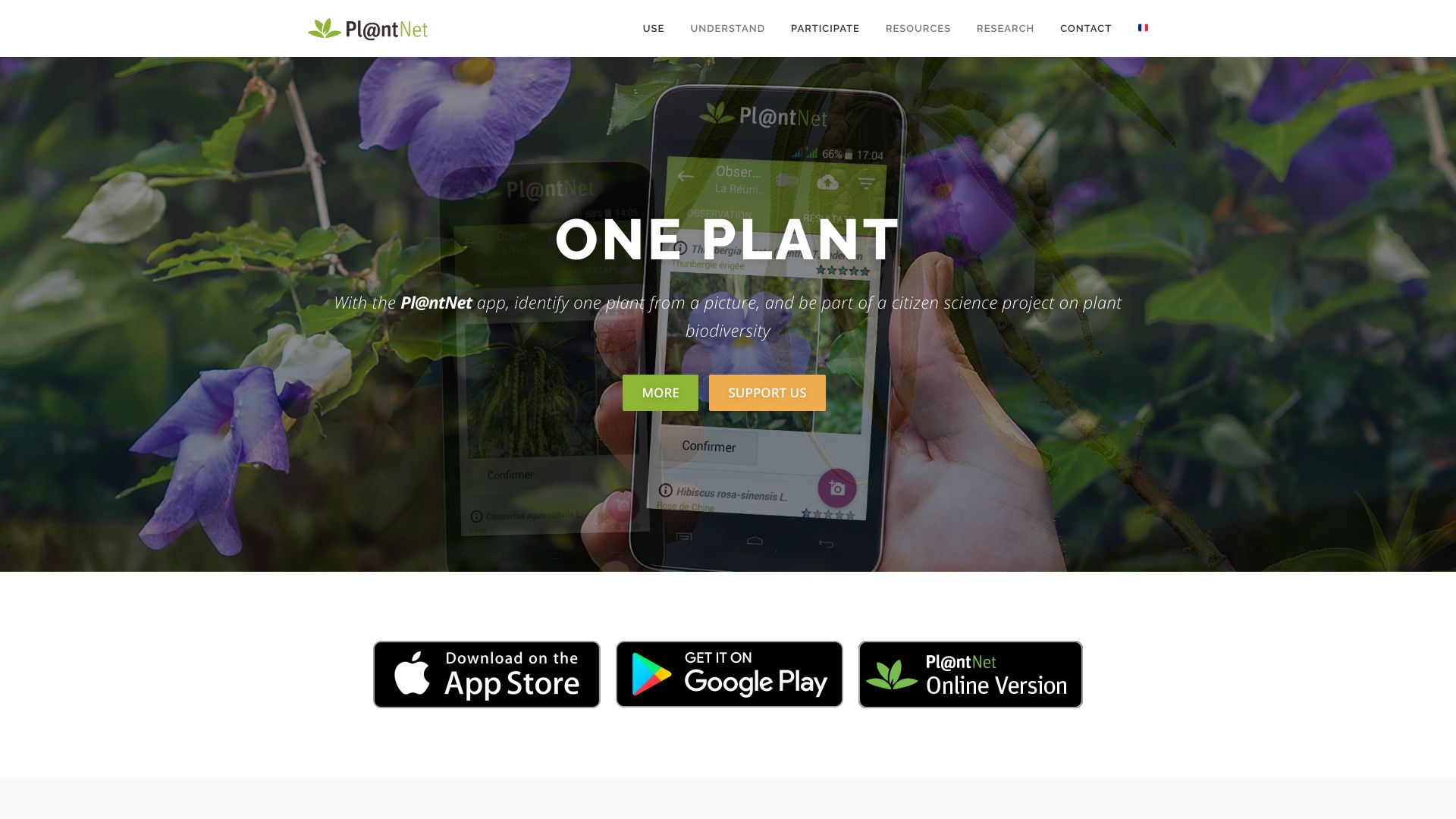- Home
- AI Image Recognition
- plantnet

plantnet
Open Website-
Tool Introduction:Identify plants from photos with community-powered, privacy-safe AI.
-
Inclusion Date:Oct 21, 2025
-
Social Media & Email:
Tool Information
What is plantnet AI
plantnet AI, known as Pl@ntNet, is a citizen science project and mobile/web application that uses image recognition to help you identify plants from your photos. By combining computer vision with a large, community-driven dataset curated by botanists, it delivers ranked suggestions for species and lets users contribute validated observations to a biodiversity platform. The project is free to use, carries no advertising or data resale, and is supported by the Agropolis Foundation. Its core value lies in making plant identification accessible while advancing plant biodiversity knowledge.
plantnet AI Main Features
- AI-powered plant identification: Upload or capture photos and receive ranked species suggestions based on visual similarity.
- Organ-based inputs: Specify leaf, flower, fruit, or bark to improve recognition accuracy.
- Community validation: Observations can be confirmed by contributors and experts to strengthen data quality.
- Rich species pages: Access photos, traits, and distribution information for thousands of plants.
- Geographical context: Location metadata (when shared) refines suggestions to local flora.
- Privacy-friendly experience: No ads and no resale of user data, aligned with a public-interest mission.
Who Should Use plantnet AI
plantnet AI suits nature enthusiasts, hikers, gardeners, students, and teachers who need quick, on-the-go plant identification. It also supports conservation volunteers, park managers, and environmental groups running biodiversity surveys or educational outreach. Researchers and botanists may use it as a field aid and to engage the public in data collection.
How to Use plantnet AI
- Install the mobile app or open the web app.
- Take a clear photo of the plant, or upload one from your gallery.
- Select the relevant organ (e.g., leaf, flower, fruit, bark) to guide the algorithm.
- Review the ranked suggestions and open species pages to compare diagnostic traits.
- Confirm the correct species and submit your observation to contribute to the dataset.
- Optionally add location and notes to support community validation.
plantnet AI Industry Use Cases
Environmental NGOs and community scientists use plantnet AI for rapid biodiversity inventories in parks and nature reserves. City greening teams can catalog urban flora to inform maintenance and restoration. Educators integrate it into botany lessons and field trips to build plant literacy. Ecotourism guides leverage the app to identify native species for visitors and to document plant occurrences that support local conservation actions.
plantnet AI Pricing
plantnet AI is free to use, with no advertising and no resale of user data. The project is supported by the Agropolis Foundation. For the latest details on availability and any potential programmatic support options, check the official website or app store listing.
plantnet AI Pros and Cons
Pros:
- Accurate, AI-driven plant recognition with organ-level guidance.
- Community validation enhances data reliability over time.
- Extensive species information and educational value.
- Privacy-focused: no ads, no data resale.
- Accessible on mobile and web for field use.
Cons:
- Accuracy depends on photo quality, plant part visibility, and region.
- Look-alike species and cultivars can be hard to distinguish.
- May require internet connectivity to identify and sync observations.
- Coverage varies by geography; uncommon species may have limited examples.
plantnet AI FAQs
Question 1: How accurate is plantnet AI?
Accuracy varies by photo quality, the selected organ, and regional coverage. Clear images of diagnostic parts (flowers or leaves) typically yield better results, and community validation further improves reliability.
Question 2: Does the app sell my data or show ads?
No. The project states there is no advertising and no resale of user data, aligning with its public-interest mission.
Question 3: What plants can it identify?
It focuses on vascular plants such as trees, shrubs, and herbaceous species. Coverage is strongest where the community has contributed more observations.
Question 4: How can I improve identification results?
Photograph a clear, well-lit view of a single plant, include different organs (e.g., leaf and flower), and enable location if possible to provide regional context.




